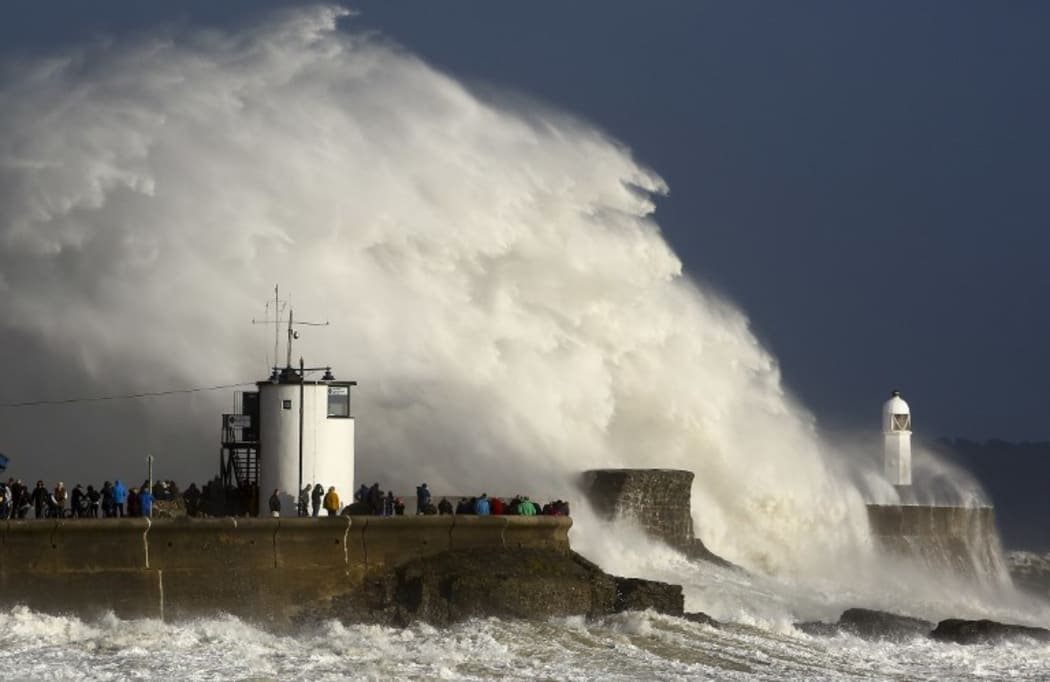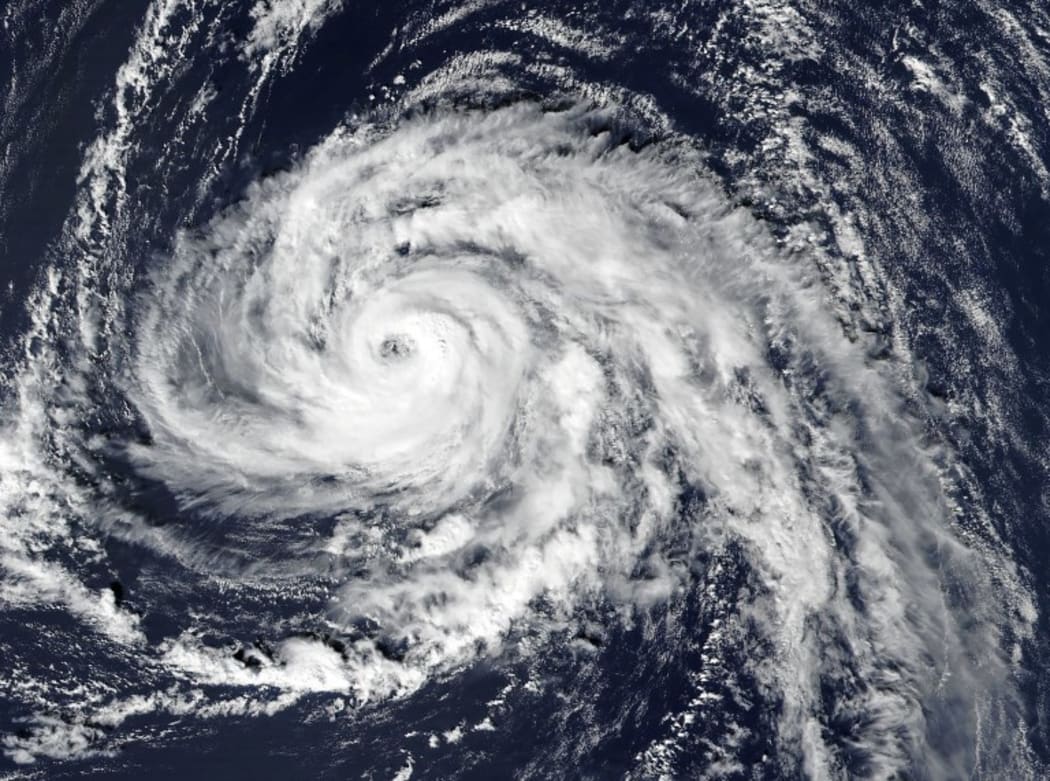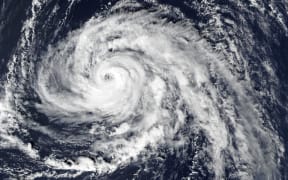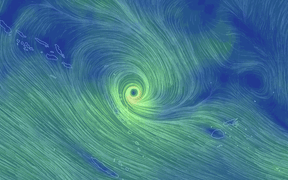Two men and a woman have been killed as ex-Hurricane Ophelia hits the UK and Ireland.

Huge waves strike the harbour wall and lighthouse at Porthcawl, South Wales, as storm Ophelia hits. Photo: AFP
The storm, downgraded from a hurricane overnight, was the worst to hit Ireland in half a century. It made landfall with winds as strong as 190 km/h hitting the most southerly tip of the country.
As hurricane-force gusts battered the Republic of Ireland, one woman and a man died in separate incidents when trees fell on their cars.
A second man died in a chainsaw accident while attempting to remove a tree felled by the storm.
People in Ireland are being told to stay indoors.
Sean Hoskins, from Wairarapa and is now a forestry contractor in County Kilkenny, said there were some pretty epic winds.
"We lost our power. I didn't go to work today, it's too windy to cut trees. The same with my subcontractors, we all stayed home.
"A lot of damage and I know I have to go in tomorrow in an estate we're working in at the moment and clear a couple of roads into the place and we've got a few acres of Douglas fir that have come down.
"The difference between Ireland and the Wairarapa is that in the Wairarapa you have seven-wire fences along every boundary but here it's all hedgerows and all the hedgerows have big old lovely trees in them. It only takes a few of those to come down and you can sort of knock out power lines and block roads."
He said power was out in patches all over the country.
Across Ireland, thousands of homes and businesses are without power and all schools have been shut.
Dramatic footage of the roof being blown off #Douglas Community School's gym on southside of #Cork city #Ophelia #iestaff pic.twitter.com/0dSw5w1rTj
— Eoin English (@EoinBearla) October 16, 2017
About 360,000 homes and businesses in the Irish Republic, and 16,000 in Northern Ireland, are without power.
About 4000 customers in Wales have also lost power.
Former RNZ journalist Helen Vaughan in Dublin said a fifth of Ireland was without electricity and schools would stay closed for a second day.
"Most hurricanes start down in the Azores near Africa and head over towards the Caribbean and the US. They don't come northeast to Europe or to Ireland. Our last hurricane was in 1961.
"We haven't even got to the mop up, we're still hunkered down."

A satellite image captured on 13 October, shows hurricane Ophelia approaching the Azores islands in the Atlantic Ocean. Photo: AFP / NASA EARTH OBSERVATORY
The woman killed in the storms, who was in her 50s, died near Aglish, County Waterford. A female passenger in her 70s was injured. Her injuries were not believed to be life-threatening, the Gardai, Ireland's police force, said.
One of the men died near Dundalk, Co Louth, after his car was struck by a tree, police said.
The other man, in his 30s, was killed in Cahir, Tipperary County.
The roof of Cork's football stadium has also been blown off by the winds.
All road users were urged to stay indoors and not travel unless their journey was absolutely necessary.
The Met Office has warned of "potential danger to life", with wind gusts off the south coast of Ireland reaching 176 km/h at Fastnet Rock.
An amber warning - indicating a potential risk to life and property - for Northern Ireland, Wales, southwest Scotland and the Isle of Man was in force.
Take extreme care.
— Met Éireann (@MetEireann) October 16, 2017
A swathe of severe southwest winds already over parts of Clare, will propagate northwards through Connacht and... 1/2 pic.twitter.com/zDbVF9aqBS
A yellow warning of "very windy weather" also covered parts of Scotland, the west and north of England and Wales.
Ireland's Electricity Supply Board described it it as an unprecedented event that would affect every part of the country for days.
Around 170 flights from Ireland's two main airports at Dublin and Shannon were cancelled.
In England, three flood warnings - meaning flooding is expected - have been issued in the southwest, and there are several flood alerts - meaning flooding is possible - across other parts of the country.
The Scottish Environment Protection Agency has put a series of flood alerts and warnings in place for southwest Scotland.
The storm is expected to move towards western Scotland.
BBC / Reuters / RNZ



